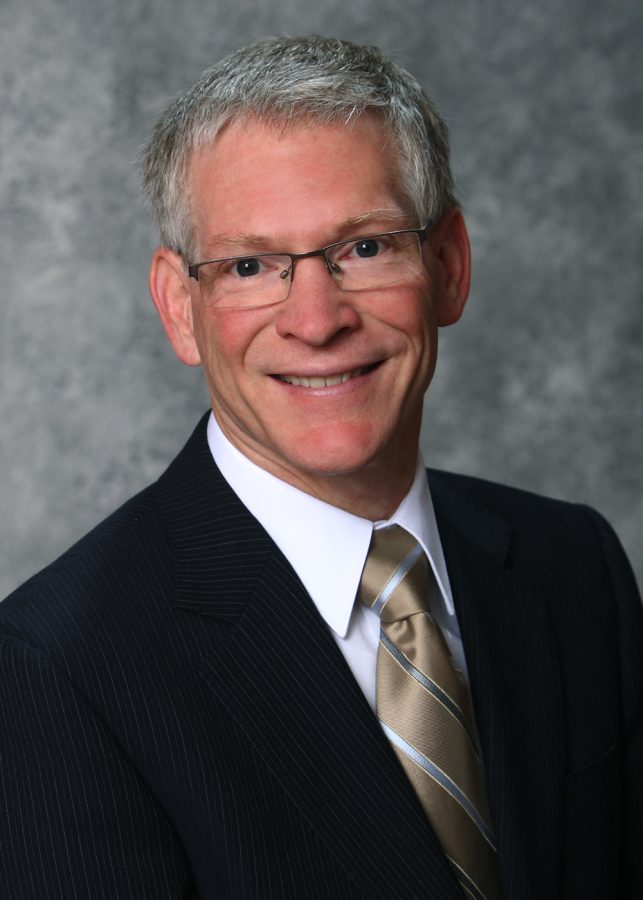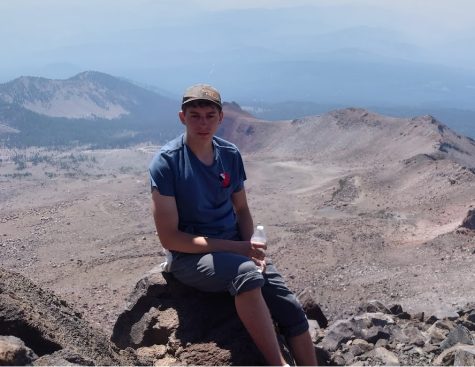SDSU research partners with Sioux Falls companies
November 16, 2021
Sioux Falls-area companies will soon have new means of achieving improved efficiency, increased automation and other technical assistance through South Dakota State University’s Division of Research and Economic Development.
The initiative will deploy SDSU’s vast network of research specialists to develop real-world solutions to companies’ inquiries as early as Spring 2022.
According to Daniel Scholl, vice president for the Division of Research and Economic Development, the effort will focus largely on manufacturing companies—a sector that has been experiencing substantial worker-shortage issues.
“All manufacturers … in North America are faced with difficulty recruiting and hiring,” Scholl said. “One of the ways to respond to that challenge is by making greater use of automation.”
The initiative was born out of the SDSU’s Sioux Falls Academy held this past July. The event was an effort to become more responsive to the needs of the private sector and to identify businesses’ main challenges in operating. According to Scholl, one message came through loud and clear: “We can’t hire enough well-trained people.”
“We have expertise, we have facilities and we have high-end laboratory equipment to be able to answer a lot of these challenges that the industry is facing,” Stephen Gent, a professor from the Department of Mechanical Engineering, said.
“If we were looking at improving the design of a product or a process,” he continued, “that could be a lower cost of production. It could be an increased level of quality. It could be a more streamlined pathway from raw material to end-product. It could be improved worker safety, increased worker satisfaction. It could also be a testbed for a concept that they want to try, and we would be able to provide information about any type of emerging product to help them realize that product.”
SDSU graduate students and even some undergraduate students will likely participate in the project, according to Scholl and Gent, giving them experience in the private sector and allowing them to showcase their design skills.
“Some projects may have a lot of student involvement, some projects may have a lot of graduate student involvement and other projects may have a lot of faculty and employee involvement, or some variation of all of those,” Scholl said. “It depends on the needs of the partner.”
SDSU is in an exceptional position to address the needs of the private sector, according to Gent, because of the collection of expertise in numerous fields. That, along with the proximity to the Sioux Falls metro area, make SDSU an ideal choice for businesses.
“If we were able to establish five relationships [initially], that would be a really big step forward for Sioux Falls—and for SDSU and SDSU students,” Scholl said. “Students always benefit when our faculty are involved in new research, in their research and development endeavors. It contributes to a vibrant, intellectual environment that will enable students to be around [those] who are making the cutting edge. And that’s exciting.”
SDSU isn’t a stranger to innovation. In fact, it’s happening all the time.
According to Scholl, a company called Prairie Aqua Tech is making use of an SDSU-developed technology that uses bio-processing to process raw soybean meal into a high-value protein enhanced ingredient for animal feeds—especially fish diets—and replaces the fish meal ingredient used currently.
SDSU also researches and develops new varieties of crops, notably oats, that are climate-adapted and an overall higher-quality product than other products on the market. There’s even an ongoing collaboration with General Mills on the project.
Those are just some of the examples of how SDSU commercializes its technology, Scholl said.
SDSU’s research footprint is among the largest in the region. Fiscal year 2021 (July 1, 2020 through June 30, 2021) research grants and contracts reached $48.8 million: $39.8 million came from federal sources, $3.8 million from state sources, $1.5 million from private sources and $3.7 million from other sources including commodity organizations, foundations and not-for-profits.
SDSU’s Innovate SoDak website lists the areas of expertise: sustainable energy, precision agriculture, indoor air quality, commercialization and workforce development.
“This [initiative] is an example of our mindset at SDSU, and that is to find creative ways to utilize university research capabilities, faculty and students,” Scholl said.

























